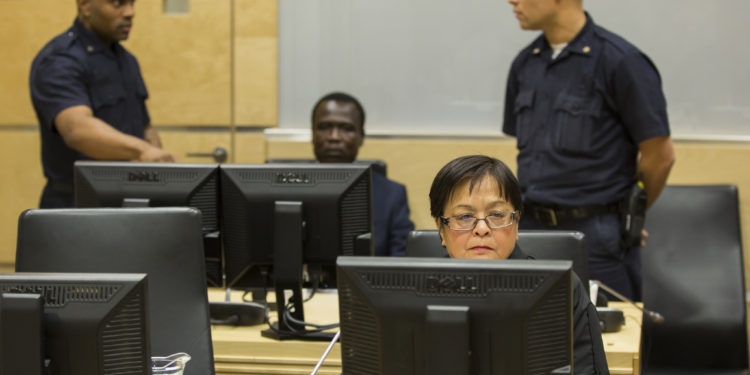From the time Dominic Ongwen surrendered to the US military in the Central African Republic (CAR) in 2015, I have been following the emerging media reports and debates for mainly two reasons: One, Ongwen’s case forms an important section of my work and two, working to reverse the devastating impact of what the northern Uganda conflict had on the women and men, boys and girls in the local communities is a subject that is so close to my heart.
By Penny Mbabazi Atuhaire
On January 6, 2015, Ongwen surrendered to the US military in CAR. Shortly after he, a lot of discussions were held on whether he should be tried domestically at the International Crimes Divisions (ICD) of the High Court of Uganda basing on the complementarity principle within the framework of the Rome Statue or, take him to The Hague on condition that the Ugandan government would cooperate with ICC throughout the process.
Days after these discussions, the US, CAR and Uganda finally reached a consensus and agreed that Ongwen should be transferred to the ICC and investigations into his case would commence.
On January 15, 2015, Ongwen was transferred to the ICC detention centre where he has been kept under maximum security until now. Ongwen faces 70 charges of war crimes, crimes against humanity and sexual-and gender-based crimes that he is suspected to have committed from 2002-2005 during the LRA insurgency.
Seeing one of the LRA’S most wanted man appear before the three judges for the confirmation of charges hearing was an important day for not only those who believe in the ideals of international criminal justice but also for the thousands of victims who were watching the proceedings live from The Hague in various parts of the country. Majority of them were filled with hope, believing that their tormentor will face the law and that justice will finally be done.
People are curiously waiting to see how the ICC is going to treat the unique nature of Ongwen’s dual-identity as a victim and as perpetrator and at the same time be able to deliver justice as it ought to be done.
As a victim, Ongwen was abducted and conscripted into the LRA rebel group in 1988 at the age of 14 while on his way to school. It is believed that from the time he was abducted, he blended into the LRA system and started to behave and act like one of them.
This implies that joining the LRA to fight the government of Uganda, and later on to torture, kill and rape innocent civilians, was never his intention from the very start. Indeed, majority of his sympathisers, including his close family have continued to argue that as a child, he did what he was instructed to by his commanders and do not understand why he is treated as a perpetrator.
Yet from the international criminal justice perspective, Ongwen is a perpetrator. This is because from the time he was abducted, the nature of crimes he committed as a child soldier until at a later stage when he was an adult fall under the category of international crimes as provided for by the Rome Statute.
What makes Ongwen’s case even more unique is the fact that the framers of the Rome Statute never at any one moment envisage a situation where the ICC would be trying a former child soldier turned perpetrator with a dual-identity as that of Ongwen. No doubt that this case is yet to set an important precedent in the history of international criminal justice.
As of now, the ICC Rome Statute does not provide jurisdiction over crimes committed by a person under the age of 18 years. And indeed, the office of the prosecutor has fully recognised Ongwen’s dual identity and confirmed that Ongwen is a suspect for the international crimes that he allegedly committed as an adult.
His status as a child who was abducted at the age of 14 can only be used as a mitigating factor during sentencing in an event that his case is committed for trial and conviction.
Many people would want to know what yardstick the court will use to determine at what stage Ongwen ceased to be a victim and became a perpetrator. And even when he becomes a perpetrator, one would be keen to ascertain his state of mind at the time when the alleged crimes were being committed and the implication of this.
And for the thousands of victims watching, what is likely to be their take-home if Ongwen is finally convicted and sentenced? We are keenly watching and anxiously waiting to see justice done as it ought to be done.
Ms. Atuhaire is a researcher on transitional justice at the Foundation for Human Rights Initiative. pennymbabazi14@gmail.com, First published in Uganda’s Daily Monitor







